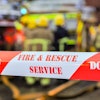
Accidents, such as pulling the wrong tooth, can happen, but how clinicians respond to these situations makes all the difference, according to a webinar presented on January 19 by the ADA Council on Advocacy for Access and Prevention.
Developing critical communication skills to respond effectively to patients who experience harm during dental care can lead to rebuilt trust instead of consequences such as getting sued, said Dr. Thomas H. Gallagher, a general internist and professor in the University of Washington Department of Medicine and associate chair for Patient Care Quality, Safety, and Value.
"Our fundamental obligation is when something unexpected and/or harmful happens, we need to respond in ways that support patients and families rather than traumatize them further," Gallagher said. "The way to do that is through effective communication based on transparency."
Why you shouldn't stay silent
When faced with a harmful event, clinicians may want to stay quiet or avoid patients and their families, but that can make matters worse. Communicating with patients after harmful events isn't just an auxiliary action -- it's a critical step. Dentists who fail to respond to harmful events can face several consequences such as compounding patient suffering, increased likelihood of litigation, and heightening the distress of the dental team.
"Communication breakdowns can be just as harmful as traditional adverse events and errors might be," Gallagher said.
Speculation, blame, or encouraging a patient to move past what happened also won't help, he warned. Instead of avoiding or confronting a patient, clinicians should strive for openness, empathy, compassion, effective communication, and learning.
Statements such as "I'm sorry you feel that way" or "I'm sorry you got mad" are ineffective responses to patients who have experienced harm during dental care, Gallagher said.
"When we don't do a good job at responding to a harm event, it makes things worse for patients and families," he said.
Listening is a fundamental tool
Clinicians can avoid making matters worse by planning and preparing for the conversations they will have with patients and their families. Most times, dentists are so uncomfortable with a situation that they want to hurry through a discussion without listening or thinking about how they will respond, Gallagher said.
However, clinicians must first understand that patients have a need for truthful, accurate information, as well as emotional support, including an apology and empathetic communication. That support may also come in the form of follow-up conversations and, in some cases, compensation, he added.
During these interactions, patients decide if a dentist cares, understands the gravity of a situation, and feels remorse. Dentists can show patients and their families their best intentions by listening for emotions, acknowledging them, and validating them, Gallagher said.
"It's not intuitive to many of us," he said. "We're so focused on what we're saying and ourselves ... that we're not listening that carefully or listening to emotional cues."
When an accident or mistake occurs, it is not unusual for a patient to get angry and even threaten a lawsuit. Effective communication may prevent situations from escalating. Listening to questions, getting to the heart of what's behind their inquiries, and exploring their concerns are key, Gallagher said.
"Openness makes you less likely to be sued," he said. "Oftentimes, when patients are threatening litigation, it's about, 'Are you taking me seriously and taking this problem seriously? I want you to pay attention to me.' "
Clinicians should, however, be familiar with the resources their liability carriers provide to assist in these situations, he added.
Takeaways
Once clinicians understand how to communicate with patients when things go wrong, they should take the following steps:
- Lead by example, embracing transparency as a pillar of safety culture.
- Encourage staff and patients to share any concerns about care and respond with appreciation when they are raised.
- Report near misses and harmful events.
- Practice core skills associated with communicating to patients and families about harmful events.
"A disciplined approach to communicating with patients and family after a harm event is key to avoiding challenges," Gallagher concluded.




















